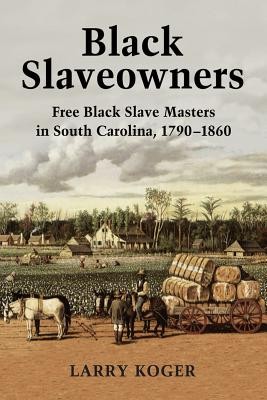
- We will send in 10–14 business days.
- Author: Larry Koger
- Publisher: McFarland & Company
- ISBN-10: 0786469315
- ISBN-13: 9780786469314
- Format: 15 x 22.6 x 2 cm, softcover
- Language: English
- SAVE -10% with code: EXTRA
Reviews
Description
Most Americans, both black and white, believe that slavery was a system maintained by whites to exploit blacks, but this authoritative study reveals the extent to which African Americans played a significant role as slave masters. Examining South Carolina's diverse population of African-American slaveowners, the book demonstrates that free African Americans widely embraced slavery as a viable economic system and that they--like their white counterparts--exploited the labor of slaves on their farms and in their businesses. Drawing on the federal census, wills, mortgage bills of sale, tax returns, and newspaper advertisements, the author reveals the nature of African-American slaveholding, its complexity, and its rationales. He describes how some African-American slave masters had earned their freedom but how many others--primarily mulattoes born of free parents--were unfamiliar with slavery's dehumanization.
EXTRA 10 % discount with code: EXTRA
The promotion ends in 18d.06:20:24
The discount code is valid when purchasing from 10 €. Discounts do not stack.
- Author: Larry Koger
- Publisher: McFarland & Company
- ISBN-10: 0786469315
- ISBN-13: 9780786469314
- Format: 15 x 22.6 x 2 cm, softcover
- Language: English English
Most Americans, both black and white, believe that slavery was a system maintained by whites to exploit blacks, but this authoritative study reveals the extent to which African Americans played a significant role as slave masters. Examining South Carolina's diverse population of African-American slaveowners, the book demonstrates that free African Americans widely embraced slavery as a viable economic system and that they--like their white counterparts--exploited the labor of slaves on their farms and in their businesses. Drawing on the federal census, wills, mortgage bills of sale, tax returns, and newspaper advertisements, the author reveals the nature of African-American slaveholding, its complexity, and its rationales. He describes how some African-American slave masters had earned their freedom but how many others--primarily mulattoes born of free parents--were unfamiliar with slavery's dehumanization.


Reviews